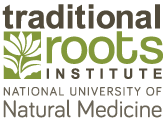Pomegranate: a Divine Fruit?
Friday, Nov. 1, 7-9 p.m. In the NCNM Annex.
Includes a catered dinner and two hours of CE credit (to be applied for.)
 Pomegranate (Punica granatum) is undergoing a Renaissance of attention for its health benefits. Traditional knowledge, probably dating back to domestication of plant species, has accumulated a wealth of information about the fruit and its effects on the human body – best summarized by its association with major goddesses of Greek mythology. This body of knowledge has been transmitted through the centuries until not so long ago.
Pomegranate (Punica granatum) is undergoing a Renaissance of attention for its health benefits. Traditional knowledge, probably dating back to domestication of plant species, has accumulated a wealth of information about the fruit and its effects on the human body – best summarized by its association with major goddesses of Greek mythology. This body of knowledge has been transmitted through the centuries until not so long ago.
Based on ancient written documentation, artistic representations and archaeological remains, Smithsonian scholars Alain Touwaide, PhD, and Emanuela Appetiti will summarize the experience and knowledge of pomegranate in the Mediterranean tradition. After documenting that ancient physicians actually used pomegranate, Touwaide and Appetiti scrutinize its medical applications, the part(s) used, preparations, dosages, modes of administration and expected health effects.
Since the data span 5th century BCE to 16th century CE, Touwaide and Appetiti devote special attention to possible differentiation through time and among populations inhabiting the Mediterranean area during the period. They will test the hypothesis that differences may be treated as biomarkers revealing epidemiological information not otherwise available. This discussion will generate a historical pharmacopoeia of pomegranate of a new genre: dynamic and evolutionary, and reflecting the possible geographical and chronological variations in pomegranate ancient uses.
About the speakers:
 Emanuela Appetiti
Emanuela Appetiti
Currently a research collaborator at the Smithsonian Institution in Washington, D.C., Emanuela Appetiti is a sociologist with a specialization in ethno-anthropology who has done research in several institutions throughout the world, and studied and visited traditional populations worldwide. She gained intercultural experience and professional expertise in public relations, media relations, marketing, and sales during her time with the auction house Christie’s Italy in Rome, where she was press officer and clients liaison. For the past several years, sharing life and a strong passion for research with Alain Touwaide, she has become increasingly focused on history of medicine and of ethnobotany in the Mediterranean basin. She is fluent in Italian (mother tongue), English, French and Spanish.
 Alain Touwaide, PhD
Alain Touwaide, PhD
Currently a research associate at the Smithsonian Institution in Washington, D.C., Alain Touwaide‘s research deals with the history of botany, particularly the medicinal plants, from Antiquity to the 17th century, in the Greek, Latin, and Arabic cultures that flourished around the Mediterranean Sea. Through a trans-disciplinary approach, which involves philology and history, medicine and pharmacy, pharmacology and ethno-anthropology, he analyzes ancient texts in their original language (Greek, Latin, Arabic), prepares critical editions of major works (with English translation and scientific analysis), searches in libraries all across the world for unknown ancient manuscripts, and produces reference works on ancient botany, therapeutics, and plant representations (paper and internet publications).
Dr. Touwaide is a Fellow of the International Academy for the History of Pharmacy, of the Washington Academy of Sciences, the American Association for the Advancement of Science, the Royal Medical Society, and the Accademia di Storia dell’Arte Sanitaria (Italian Academy for the History of Medical Arts). He is fluent in French (mother tongue), English, Italian and Spanish, and has a good knowledge of several other languages.


